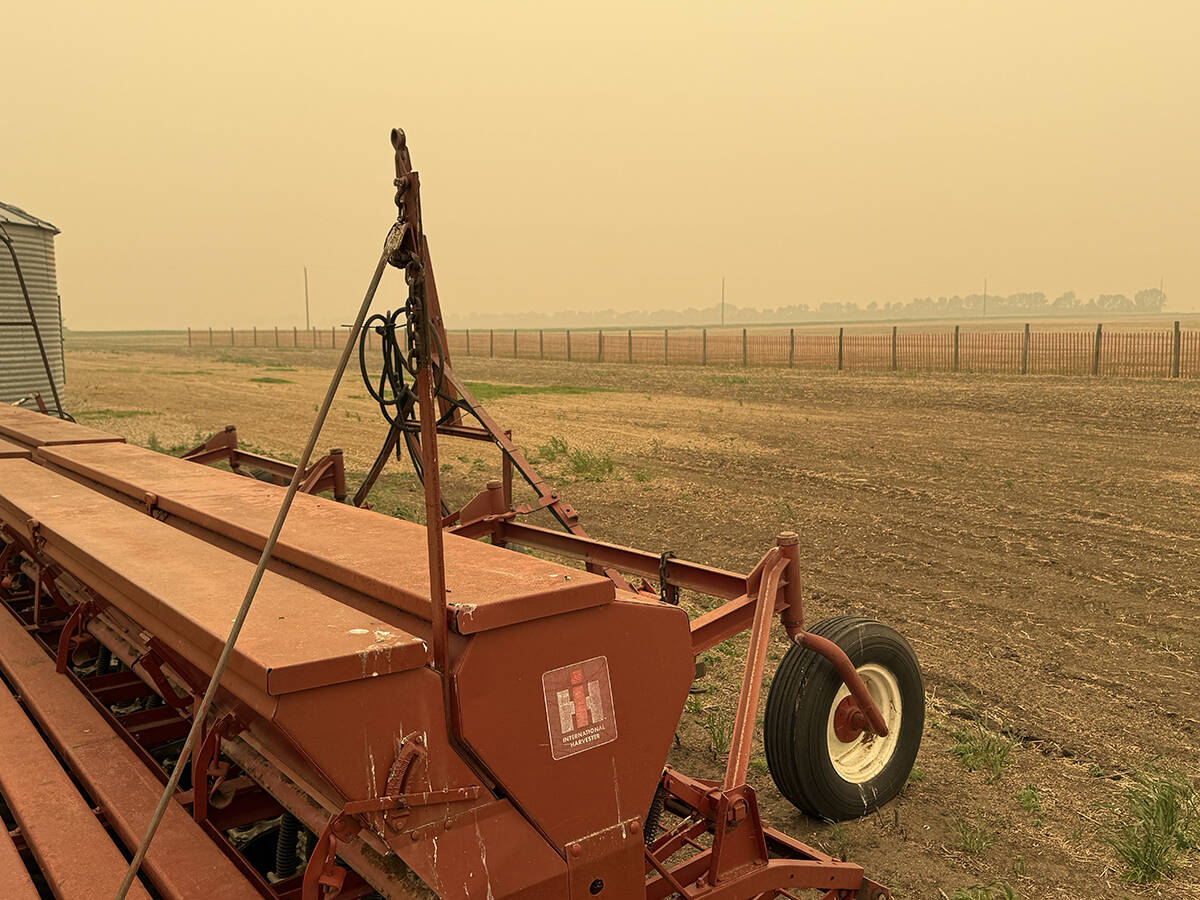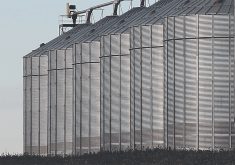Organizations say increasing the inclusion rate will affect intergenerational transfer and decrease the number of family farms
REGINA — The farm lobby against federal changes to the capital gains inclusion rate is gathering steam.
Grain Growers of Canada launched ProtectFamilyFarms.ca last week after revealing research showing family grain farmers would face 30 per cent more in taxes if the rate rises from one-half to two-thirds.
The online lobby allows farmers to contact their local Members of Parliament to express their concern.
Read Also

Wildfires have unexpected upside this year
One farmer feels smoke from nearby wildfires shrouded the July skies and protected his crop from the sun’s burning rays, resulting in more seeds per pod and more pods per plant.
Conservative MPs have backed the effort and Dalhousie food professor Sylvain Charlebois published an opinion piece saying the farm sector is at risk.
“These new capital gains tax changes risk undermining the financial stability of family-owned farms and businesses, crucial pillars of our agri-food sector,” Charlebois said. “By making farming and entrepreneurship less attractive, we jeopardize not only our agricultural heritage but also the economic health of rural communities across Canada.”
The new inclusion rate would take effect June 25. Capital gains up to $250,000 would be taxed at the 50 per cent rate but gains over that amount would be taxed at 66.67 per cent.
The lifetime capital gains exemption will rise from $1,016,836 to $1.25 million, and all gains generated through a corporation will be taxed at the two-thirds rate.
The federal government has said only 0.13 percent of Canadians, or about 60,000 people, would be affected but the GGC research, done with farm tax accountants, suggests otherwise.
It said the inclusion rate change affects farmers’ retirement plans and threatens the long-term viability of family farms across the country.
It found an 800-acre farm bought in 1996 in Ontario would have to pay almost $1.2 million in additional taxes if sold today. A 4,000-acre farm in Saskatchewan would see an increase of more than $900,000 in tax costs.
“With over 40 per cent of farmers nearing retirement over the next decade, this tax increase introduces substantial uncertainty into their retirement planning,” said Andre Harpe, GGC chair and Alberta grain farmer. “Despite Budget 2024’s title of ‘Fairness for Every Generation,’ this change will actually burden the next generation of farmers, who are already grappling with costly transfers.”
The research also included a joint-ownership case study, using a 2,500-acre Alberta grain farm. Even with two lifetime capital gains exemptions, the taxes on capital gains will rise 29 percent, or more than $1 million, the document said.
GGC and nine other organizations previously lobbied for farmers to be exempt from the change, citing intergenerational transfer as a main concern.
The Canadian Federation of Agriculture said it was frustrated the changes could undermine those transfers and that Ottawa ignored the calls for further work on the planned changes.
“By announcing the proposed tax changes in the federal budget on April 16 with an effective implementation date of June 25, the government of Canada is not providing Canadian farm businesses with enough runway to fully assess the potential implications of these changes for farm succession tax planning purposes and adjust accordingly,” said CFA in a news release.
The organizations worry the inclusion rate change will neutralize the increase to the lifetime exemption.
“By ramming these very significant tax changes through while farmers are in the field planting, we aren’t giving producers enough time to fully assess the implications for their families and their businesses,” said president Keith Currie.
The tax measures are expected to add about $19 billion to federal coffers. Ottawa says provinces also stand to benefit from more than $11 billion.
GGC said farmers are often asset rich but cash poor and regularly upgrade and expand their operations and equipment.
Executive director Kyle Larkin said he hasn’t seen any signals the government will change its mind.
“What will happen is that the family is going to be taxed out of their own farm. The next generation is not going to be able to afford to take over their family farm and that will accelerate the corporatization of farmland in Canada,” he said.
“Any kind of corporatization is only going to decrease food production and also (jeopardizes) stewardship of the land.”
Larkin said the number of family-owned farms is already declining. Charlebois said Canada loses between 700 and 1,000 each year.
The Canadian Cattle Association and the Canadian Cattle Youth Council also called for implementation to be halted until the matter could be fully studied.
“Our producers and accountants have not had enough time to properly assess the magnitude of implications these changes will have on the beef industry. We urge the government to press pause on this implementation and have discussion (on) the impacts with farmers more fully,” stated CCA president Nathan Phinney.
CCA asked to hear from farmers about how the changes will affect them.
The Canadian Chamber of Commerce is among others who have opposed the changes.
Meanwhile, in the House of Commons, the motion passed 208 to 118; the NDP and Bloc Quebecois members voted with the government while the Conservatives voted against it.
Conservative leader Pierre Poilievre said higher taxes will hurt the economy and consumers while the Liberals say the issue is tax fairness. He called for emergency finance committee meetings to study the issue.
“In two weeks’ time Justin Trudeau will hike taxes on homebuilding during a housing shortage. He will raise taxes on doctors during a doctor shortage. He will hike taxes again on farmers during a food cost crisis and on small business as Canadians’ paycheques are shrinking,” Poilievre said.
Draft legislation will follow the motion but it isn’t expected to be substantially different.
















